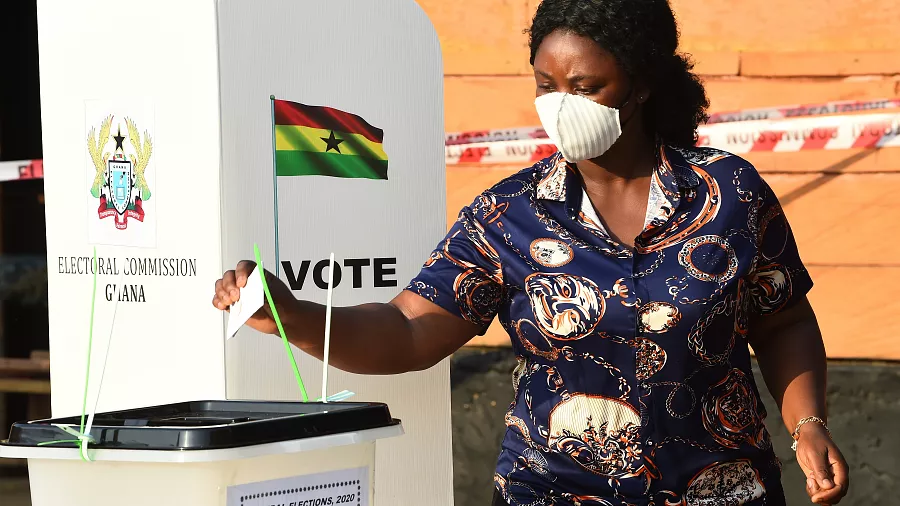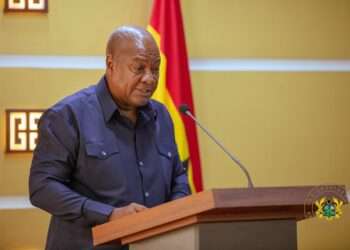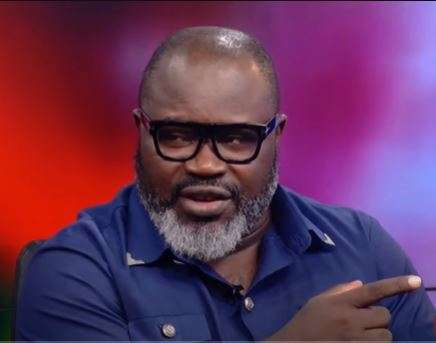A new poll conducted by InfoAnalytics has revealed a significant shift in Ghana’s political landscape, with Akans, the dominant ethnic group in party affiliations, showing a notable decline in their support for both the NPP and NDC.
The findings, released by Mussa Dankwah, Executive Director of InfoAnalytics, indicate a shift in the political allegiance of Akan voters concerning their support for the New Patriotic Party (NPP) and the National Democratic Congress (NDC).
This transformation, observed in the aftermath of the 2024 elections, suggests a changing political landscape among this voter demographic.
“The poll shows that 55% of voters who support NPP are Akans, while 34% of NDC supporters are Akans.
“While the share of Akan voters in NPP has declined from 64% (November 2024) to 55%, Akans as a proportion in the NDC base too has declined from 41% (November 2024) to 34% according to the data.”
Mussa Dankwah
In what may come as an unexpected development for political analysts, recent polling data suggests that a growing number of Akan voters now align with the National Democratic Congress (NDC) over the New Patriotic Party (NPP).

Mussa Dankwah reports that 41% of Akan voters currently support the NDC, while only 29% back the NPP. Meanwhile, 15% remain undecided, 4% support other political parties, and 10% have chosen not to disclose their political affiliations.
This shift suggests a potential realignment in Ghana’s electoral dynamics, signaling a departure from traditional voting patterns among Akan voters.
As the political landscape evolves, it raises critical questions about how the major political parties will adapt their messaging, policies, and outreach strategies to maintain or expand their support base.
Both the NDC and NPP may need to reassess their engagement with Akan voters, refine their campaign approaches, and address the underlying factors driving this change to remain competitive in future elections.
Ethnic Voting Trends Reveal Broader Political Shifts
However, the trend is not limited to Akan voters. The poll provides further insight into the political preferences of other ethnic groups in Ghana.
Among the Ga-Adangme group, 17% support the NPP, while 58% favor the NDC. Floating voters make up 16%, 4% support other parties, and 5% did not reveal their affiliations.

“For the Mole-Dagbani group, 22%support NPP, 58% NDC, 11%Floating voters, 4%other parties, and 5% Did not disclose their party affiliations.
“He stated that For the Ewe group, 11% support NPP, 65% NDC, 13% Floating voters, 3% other parties, and 8% Did not disclose their party affiliations.”
Mussa Dankwah
These numbers present critical implications for Ghana’s two dominant political parties.
Historically, the NPP has enjoyed strong support among Akan voters, but the declining trend suggests the party may need to reassess its approach to voter engagement and retention.
The growing support for the NDC among Akans, on the other hand, could reshape electoral strategies, particularly in regions traditionally viewed as NPP strongholds.
The findings also indicate an increasing number of floating voters across ethnic groups, highlighting the potential impact of independent voters in the upcoming election. With 15% of

Akan voters, 16% of Ga-Adangme voters, 11% of Mole-Dagbani voters, and 13% of Ewe voters remaining undecided, political parties may intensify efforts to appeal to these individuals in the final months leading to the elections.
Dankwah’s analysis suggests that while ethnic affiliation has historically played a significant role in Ghana’s political alignment, shifting voter priorities and concerns could be redefining the country’s political landscape.
The NPP and NDC will likely need to adapt to these changing dynamics to maintain or grow their support bases.
As Ghana approaches the 2024 elections, the battle for voter loyalty is expected to intensify.
With Akan voters now showing greater inclination toward the NDC, political strategists will have to rethink campaign tactics to win over floating voters and consolidate their existing support bases.
Meanwhile, The evolving political preferences of Akan voters will be a crucial factor to watch as Ghana heads into the next electoral season.
READ ALSO: Yul Edochie Gives His Two Cents on DNA Tests





















